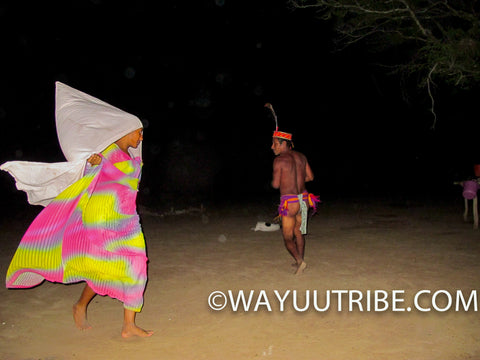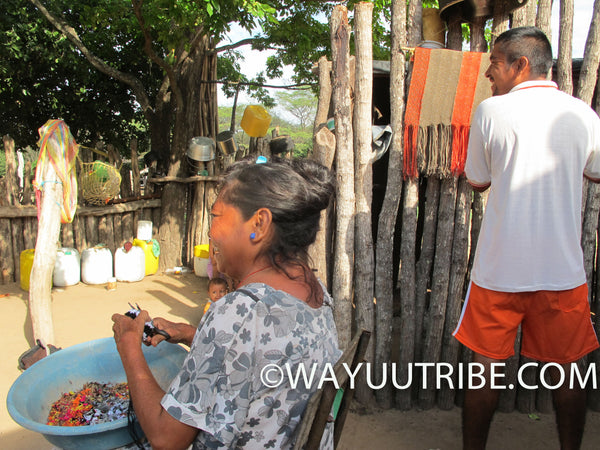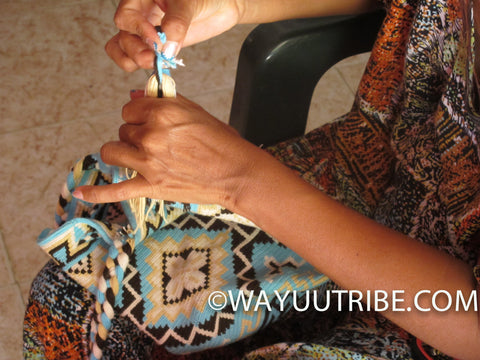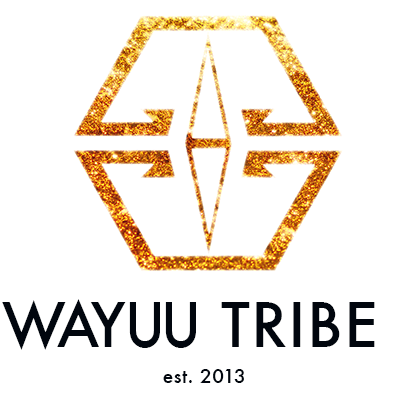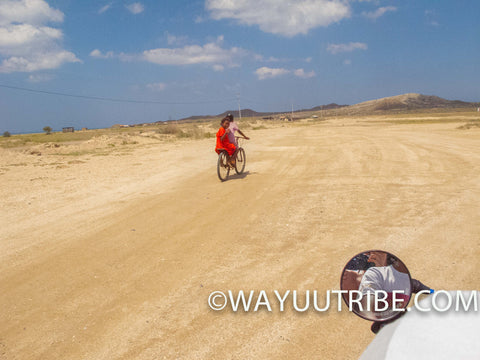
The Wayuu (pronounced "Wah-You") people are an indigenous Latin American group inhabiting the visually striking desert of La Guajira Peninsula which borders Colombia and Venezuela. The Wayuu live in small settlements called "rancherias" which consist of five or six houses. Within these rancherias, the Wayuu people are able to preserve a way of life that has been passed down through the generations and remains unscathed by modern culture. Organized in matrilineal clans, the Wayuu children carry their mother's last name, making the Wayuu women not only the center of the family but cultural leaders as well. One of the most significant aspects of culture that the Wayuu women practice is the art of weaving Mochilas Wayuu bags.
Each Wayuu mother teaches her daughter how to weave and crochet, keeping the tradition as alive and vibrant as ever. To the Wayuu, weaving is a symbol of wisdom, intelligence, and creativity. As young Wayuu women come of age, they learn to create Mochilas Wayuu bags. According to legend, the tradition comes from "Wale´kerü", a spider that taught the women how to weave their creative drawings into the Wayuu bags. Each design incorporated into every Wayuu bag is unique to the weaver, telling a story through the bag's colors, patterns and shapes.
The weaver takes careful precision in her storytelling, making sure that the Mochila bag is a strong representation of Wayuu culture. Wayuu women work full days while weaving their Wayuu bags and can take up to a full month to complete one single bag. Today, Wayuu bags has become a means of financial support for the Wayuu people, which enables them to preserve their way of life.
